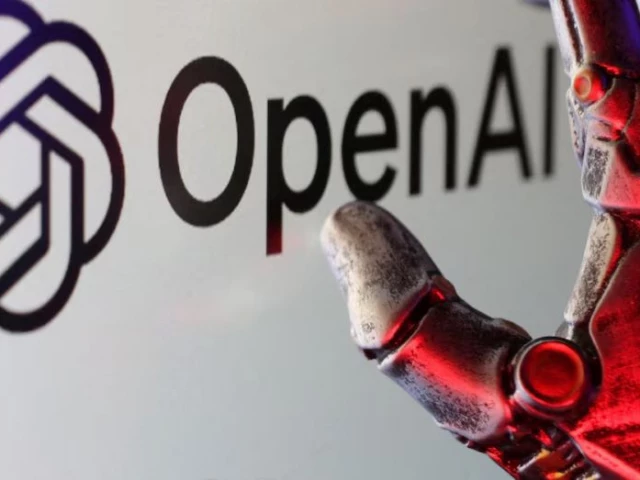National Assembly Takes Strict Notice Over CAIE Paper Leak: Inquiry Launched Amid Growing Concerns
In a move sending shockwaves across academic circles, the National Assembly takes strict notice over CAIE paper leak after credible reports emerged of widespread leaks in Cambridge Assessment International Education (CAIE) A and O Level exams. The Standing Committee on Education convened an urgent session, launching a formal inquiry and openly questioning Cambridge’s credibility and regulatory oversight in Pakistan. This significant development comes at a time when thousands of students, parents, and educators are already anxious about the fairness and integrity of international exams in the country.
How the CAIE Exam Leak Sparked a National Response
The controversy erupted during a detailed session on Friday, led by committee head Azeem Zahid. Lawmaker Muhammad Ali Sarfaraz, representing Faisalabad, stunned attendees by presenting video evidence of CAIE exam papers leaked during the May session, with supporting testimonials from affected students.
“These are undeniable proofs,” Sarfaraz stated emphatically. “But only a limited number of students gained from this wrongdoing. If Cambridge cancels the exams and applies average grading, many others will suffer. They must either retake the papers or lower the threshold.”
His remarks generated a heated debate about the consequences of sweeping cancellations or applying average grading, which could unfairly penalize honest students.
A Spotlight on Regulatory Oversight: Who Monitors Cambridge in Pakistan?
An unexpected and deeply troubling issue emerged during the meeting: there is no active Pakistani regulatory authority overseeing Cambridge International in the country. When asked who monitors and holds CAIE accountable, officials from the Federal Ministry of Education admitted to not having any direct oversight.
Dr Ghulam Ali Mallah, Executive Director of the Inter Board Committee of Chairmen (IBCC), highlighted a significant regulatory gap by revealing that his organization had not previously been involved in Cambridge’s operations. “When last year’s paper was leaked, we kept asking for updates,” Dr. Mallah explained. “We were never taken into confidence. We found out through a court notice.”
Key Issues Raised by the National Assembly Committee
This session exposed key problems with the way CAIE operates in Pakistan:
– Lack of formal regulatory supervision by local authorities
– No official communication or updates provided during previous paper leak incidents
– Unclear processes for managing and preventing exam security breaches
– Potential for unfair consequences to innocent students if drastic measures are taken
Sub-Committee Formed: A Step Toward Exam Integrity
To address these issues, the committee formed a dedicated sub-committee to investigate the CAIE paper leaks thoroughly. Members appointed include Dr. Aleem, Zeb Jafar, Muhammad Ali Sarfaraz, and Dr. Ghulam Ali Mallah. The sub-committee’s mandate is clear: to uncover the scope of the latest leaks, determine accountability, and recommend ways to strengthen exam integrity.
The investigation will officially begin after June 16, at the request of Cambridge’s Pakistan representative, Uzma Yousaf.
Cambridge’s Role Questioned Amid Clashing Perspectives
Uzma Yousaf faced stern criticism from lawmakers after attempting to shift some blame onto Pakistan’s local examination boards. “Students come to us because of the performance of local boards,” she remarked, implying that problems with local education have driven students to seek Cambridge qualifications.
Committee members quickly rebuked this argument, stressing that many Pakistani boards maintain high standards and that the immediate issue was Cambridge’s own security lapse.
Deepening Doubts Over CAIE’s Standing in Pakistan
The session highlighted growing skepticism about CAIE’s position in the country, particularly as affected students and parents demand fairness. Will Cambridge lose its edge as Pakistan’s most trusted international examination provider? With thousands of students’ futures depending on the credibility of these exams, the stakes have never been higher.
Challenges the Sub-Committee Faces in the CAIE Inquiry
As the sub-committee embarks on its investigation, several major challenges loom:
– Accessing complete documentation and evidence from both students and CAIE staff
– Assessing whether the leaks were isolated incidents or part of a systemic failure
– Evaluating feasible remedies for affected students that prioritize fairness
– Communicating transparently with the public to restore trust in the system
– Liaising with Cambridge’s international offices if necessary
If the inquiry uncovers substantial lapses in Cambridge’s protocols, it could trigger a re-evaluation of CAIE’s future role in Pakistani education. The National Assembly committee has also voiced concern over the limited mandate held by Cambridge representatives in the country, hinting at the need for stronger local or joint oversight.
What Can Affected Students and Parents Expect?
Students and parents are understandably anxious about the next steps. The formation of the sub-committee offers a path toward accountability and reform. Some of the options being considered for students whose exams were affected by the leak include:
1. **Retaking the compromised papers under strict supervision**
2. **Applying adjusted grade boundaries to ensure fairness**
3. **Providing options for alternative assessment where necessary**
4. **Enhanced transparency about the investigation’s findings**
Restoring Confidence in Pakistan’s Examination System
This incident is a stark reminder of the need for robust exam security and transparent oversight in promoting educational integrity. It also highlights the importance of clear communication between international boards like Cambridge and national regulatory bodies.
For the foreseeable future, the sub-committee’s findings—and how Cambridge responds—will be closely watched by educators, policymakers, and families alike. Any solution must balance justice for the affected students with the long-term credibility of qualifications earned in Pakistan.
FAQs About the CAIE Paper Leak and National Assembly Inquiry
**1. What sparked the National Assembly’s strict notice over the CAIE paper leak?**
Video evidence and student testimonies of leaked exam papers during the May session of CAIE A and O Levels prompted the urgent inquiry.
**2. Who regulates or oversees Cambridge exams in Pakistan?**
Currently, there is no official regulatory body in Pakistan overseeing Cambridge International. The lack of oversight was a key issue discussed by the National Assembly committee.
**3. What options are available for students affected by the CAIE paper leak?**
Options being considered include exam retakes, application of adjusted grade thresholds, or alternative assessments to ensure fairness.
**4. Could CAIE lose its standing as a preferred international board in Pakistan?**
The recent leaks and lack of oversight have raised doubts about CAIE’s credibility, potentially impacting its reputation and status in the country.
**5. How can parents and students stay updated about the inquiry’s progress?**
Updates are expected to be communicated through official announcements from the National Assembly Standing Committee, the Federal Ministry of Education, and Cambridge’s Pakistan office.
The Road Ahead: Community Vigilance and Reform
As Pakistan’s education sector grapples with the ongoing CAIE controversy, your voices matter. Stay informed, ask questions, and demand transparency from examination boards and regulators alike. Share this article to raise awareness, and if you or someone you know was affected by the exam leaks, don’t hesitate to contact your school administration or representatives of the National Assembly’s educational committee for guidance.
Let’s work together for a secure, fair, and credible academic future in Pakistan.





